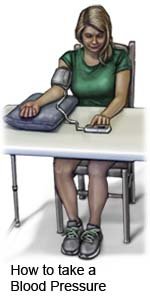Healthy Lifestyle after a Heart Attack
Medically reviewed by Drugs.com. Last updated on Aug 4, 2025.
AMBULATORY CARE:
A healthy lifestyle
after a heart attack can help you recover and also prevent another heart attack. A healthy lifestyle includes managing health conditions that increase your risk for another heart attack. It also includes eating healthy foods and exercising to give you more energy to do the things you enjoy in your life.
Go to cardiac rehabilitation as directed:
This is a program run by specialists who will help you safely strengthen your heart and prevent more heart disease. This plan includes exercise, relaxation, stress management, and heart-healthy nutrition. Healthcare providers will also check to make sure any medicines you are taking are working. The plan may also include instructions for when you can drive, return to work, and do other normal daily activities.
Do not smoke:
Nicotine and other chemicals in cigarettes and cigars can cause lung and heart damage. Ask your healthcare provider for information if you currently smoke and need help to quit. E-cigarettes or smokeless tobacco still contain nicotine. Talk to your healthcare provider before you use these products.
Manage other medical conditions:
Diabetes and high cholesterol increases your risk for another heart attack and stroke. Talk to your healthcare provider about your management plan. He or she will make a plan that helps you manage your conditions.
Follow a heart-healthy diet:
A heart-healthy diet is an eating plan low in total fat, unhealthy fats, and sodium (salt). A heart-healthy diet helps decrease your risk for heart disease and stroke. Limit the amount of fat you eat to 25% to 35% of your total daily calories. Your healthcare provider may recommend the DASH (Dietary Approaches to Stop Hypertension) Eating Plan to help lower high blood pressure and LDL (bad) cholesterol. The plan is low in sodium, sugar, unhealthy fats, and total fat. It is high in potassium, calcium, magnesium, and fiber. Ask for more information about this plan.
 |
Limit sodium (salt) as directed:
Too much sodium can affect your fluid balance. Check labels to find low-sodium or no-salt-added foods. Some low-sodium foods use potassium salts for flavor. Too much potassium can also cause health problems. Your healthcare provider will tell you how much sodium and potassium are safe for you to have in a day. He or she may recommend that you limit sodium to 2,000 to 2,300 mg a day.
 |
Exercise as directed:
Ask your healthcare provider about the best exercise plan for you. Exercise makes your heart stronger, lowers blood pressure, and helps prevent a heart attack. The goal is 30 to 60 minutes a day, 5 to 7 days a week. You may have to work up to this goal. Healthcare providers can help you reach this goal, starting in cardiac rehab sessions.
 |
Maintain a healthy weight:
Extra weight puts stress on your heart and makes it work harder. Ask your healthcare provider how much you should weigh. He or she can help you create a safe weight loss plan if you are overweight.
Manage stress:
Stress may increase your risk for another heart attack. Learn ways to control stress, such as relaxation, deep breathing, and music. Talk to someone about things that upset you.
Check your blood pressure at home:
A high blood pressure can increase your risk for another heart attack. Sit and rest for 5 minutes before you take your blood pressure. Extend your arm and support it on a flat surface. Your arm should be at the same level as your heart. Follow the directions that came with your monitor. If possible, take at least 2 readings each time. Take your blood pressure at least 2 times each day at the same times, such as mornings and evenings. Keep a record of your readings and bring it to your follow-up visits. Ask your healthcare provider what your blood pressure should be.
 |
Get a flu vaccine every year as soon as it is available:
The vaccine will help prevent the flu. A heart attack will make it harder for you to fight off the flu virus on your own. The flu may also be worse for you than for a person who has not had a heart attack. Ask about other vaccinations you may need.
Do not take any medicines without talking to your healthcare provider first:
Some medicines, such as NSAIDs and hormones, may cause problems if taken with your heart medicines. Always ask your healthcare provider before you take any other medicines.
Follow up with your doctor or cardiologist as directed:
Write down your questions so you remember to ask them during your visits.
© Copyright Merative 2025 Information is for End User's use only and may not be sold, redistributed or otherwise used for commercial purposes.
The above information is an educational aid only. It is not intended as medical advice for individual conditions or treatments. Talk to your doctor, nurse or pharmacist before following any medical regimen to see if it is safe and effective for you.
Further information
Always consult your healthcare provider to ensure the information displayed on this page applies to your personal circumstances.
